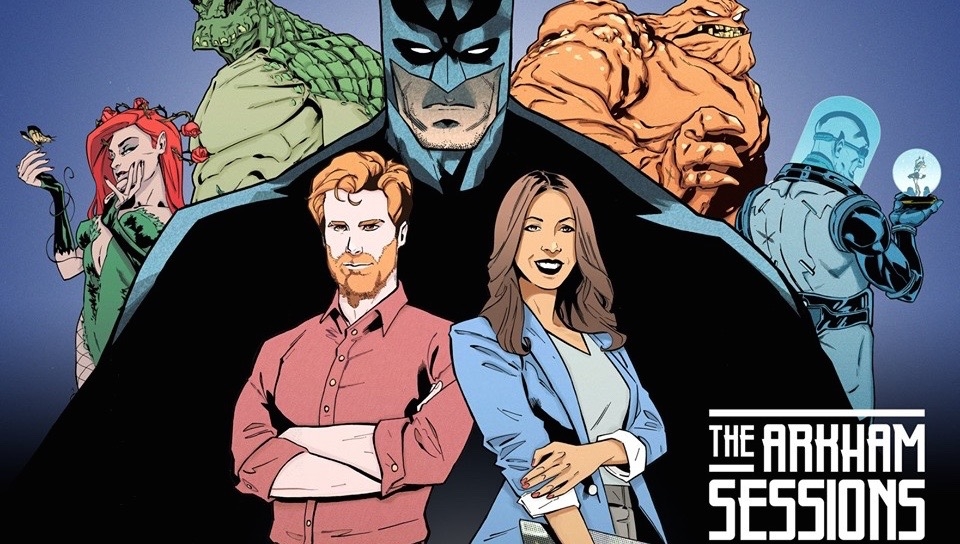The Arkham Sessions, hosted by Dr. Andrea Letamendi and Brian Ward, is a weekly podcast dedicated to the psychological analysis of pop culture, including Batman: The Animated Series, Steven Universe, the MCU, and Doom Patrol. Nostalgic, humorous, and even a little educational, each episode promises to lend some insight into the heroes, villains, and classic stories of the Dark Knight and more!
The Arkham Sessions, Ep. 171 – Captain America: The Winter Soldier
Waking up in a post-9/11 world after 70 years of cryosleep would, if anything, cause a major meltdown. We rewatch Captain America: The Winter Soldier (2014) and notice the concerning signs of increased sadness, loneliness, and preoccupation with death as prominent features of Cap’s psychology. The super soldier known for his strength, stamina, and unrelenting defense of civil liberty is weakened by the moral fluctuations of his friends, his employer, and the leaders he once revered.
The constant undercurrent of The Winter Soldier is betrayal. From Black Widow performing secret side missions, to Nick Fury covertly building weapons of mass destruction, to S.H.I.E.L.D. serving as the institutional facade of the enemy agency HYDRA, to Bucky Barnes becoming a terrorist known as the Winter Soldier–the breaches of trust feel like deep and painful injuries to Cap. Within a couple of short years of being thawed out of his ice coffin, he experiences hit after hit to his core belief system.
One’s worldview is known as “their orientation of the heart.” These betrayals are, therefore, heartbreaking. They are violations of loyalty, intimacy, and passion. Feeling alone in his experience–highlighted by his colleagues reminding him he’s been asleep for 70 years–Steve Rogers struggles to identify with the value system carried even by the people on his side. But integrating the newer, and nuanced, worldview of his peers is not an option.
As Steve’s loneliness, disillusionment, and mistrust grow, his willingness to take risks and encounter danger increases. He is an outsider; he is mis-matched to his social environment and therefore operates with a recklessness that hints he’d rather not live in this world if he cannot serve it meaningfully. Drea outlines the impact of “betrayal trauma,” which can happen when an institution that a person relies on for survival ends up violating that person’s trust. When it happens intensely and repeatedly, betrayal trauma can lead to depression, chronic anger, irritability, anxiety, insomnia, self-hatred, and self-harm. These can be common experiences for soldiers who experience life-threatening combat trauma coupled with a sense that their institution or government betrayed them or failed to protect them.
Steve’s best protection against his antagonists is to preserve his reality and stay committed to his interpretation of true sovereignty; this means, however, being harmed if not destroyed in the process. Lucky for Steve, he has a friend who’s with him ’til the end of the line.
Have psychology-related questions about Batman? Write to us via Twitter, @ArkhamSessions, or on Facebook. Or visit our official website.
And, don’t forget to subscribe to The Arkham Sessions on Apple Podcasts to get all of the latest episodes! And, be sure to join us on Patreon.

